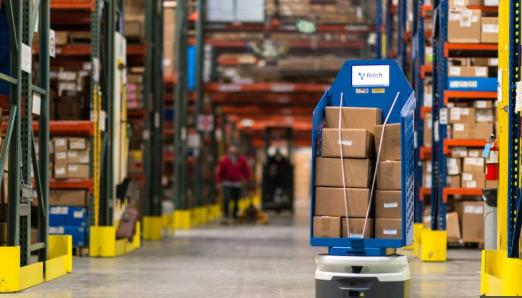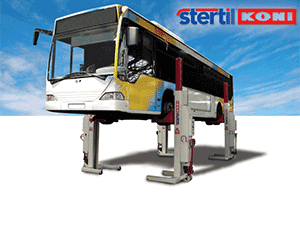Ryder Deploys Robots and Drones in its Smart Warehouse

Ryder has partnered with several innovative start-ups to provide the technologies that bring what was once considered the warehouse-of-the-future to life.
Ryder System announced today the successful transformation of Ryder smart warehouses in the Miami, Dallas, and Chicago markets. These transformed warehouses – or showcase sites – deliver advanced automation, flexible and instantly scalable operations, real-time visibility, and a customer-centric experience.
The Ryder smart warehouse showcase sites feature advanced automation, such as state-of-the-art robotics; autonomous vehicles and drones; sensors and automatic identification tools; and wearable technology, like smart glasses and ring scanners.
Ryder has identified the technology below as definitive benchmarks of an effective smart warehouse, and each area of innovation is already delivering significant improvements for customers:
- Robotics – The implementation of robotics throughout a Ryder-managed warehouse produced a 25-percent increase in productivity and 20-percent operating savings, simply by reducing travel time in the warehouse, which can account for 30 percent of an employee’s shift.
- Drones – At a Ryder customer warehouse, drones successfully scanned pallets and locations in 20 minutes, compared to a manual scan which took 90 minutes. Additionally, a cycle count on the entire warehouse took just three hours versus two days. The drone can also identify available pallet locations and verify product placement.
- Sensors – Identification tools provide real-time asset location and enable performance management. When implemented throughout a Ryder facility, productivity and cost savings increased more than 25 percent.
- Wearables – When Ryder deployed smart glasses at a customer warehouse to improve picking processes, the time it took to pick and scan inventory decreased by five to seven seconds per item and improved efficiency by 33 percent.
“We are evaluating advanced technology and automation solutions that require minimum investment but deliver maximum return,” said Steve Sensing, Ryder President of Global Supply Chain Solutions. “We focus on technologies that are mobile, flexible, and scalable, so they can flex with changing demands. As Ryder customers continue to face increasing omni-channel fulfillment demands, rising consumer expectations, and a nationwide warehouse labor shortage, we will continue to innovate and automate the parts of the process that make sense.”
Category: Commercial, Connected Fleets, Telematics, Trucks, White Paper












